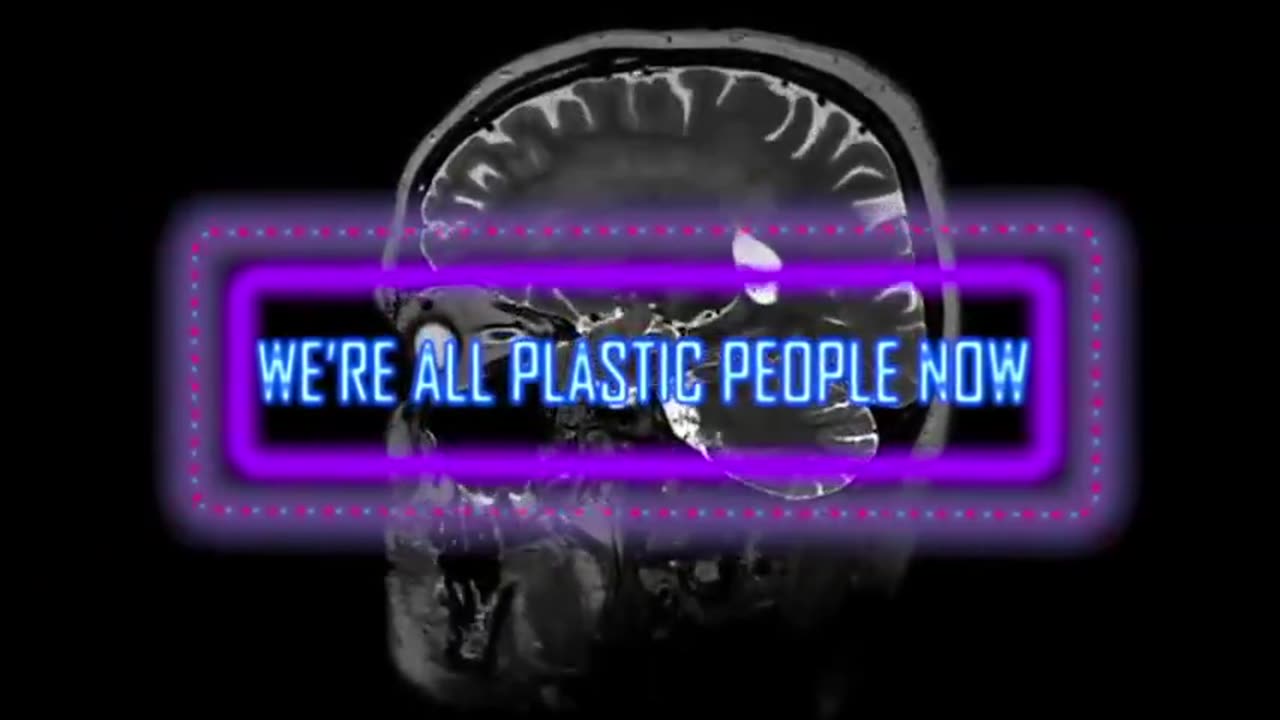Premium Only Content

'We're All Plastic People Now': A Groundbreaking Documentary
A plastic straw, a bottle of water, a plastic bag from the grocery — these single-use plastics seem so innocuous that people barely give them a second thought before tossing them out. Unfortunately, the development of this throwaway culture has contributed to the mounting burden of plastic waste that threatens the environment, wildlife and our very own bodies.
Discarded plastics are made primarily from petrochemicals1 and degrade into microscopic fragments called microplastics, which lurk everywhere, from the depths of our oceans to the food we eat and the air we breathe. It’s a sobering reality underscored by the Emmy Award-winning documentary featured above, “We’re All Plastic People Now.”
Plastic Pollution Has Become a Generational Burden
Produced and directed by Rory Fielding, “We’re All Plastic People Now” delves into how we have become the embodiment of the trash we created. It’s introduced by actor and ocean preservationist Ted Danson and featured at the 2024 Santa Fe Film Festival.2
While the film briefly illustrates the devastating impacts of microplastics on marine life, particularly sea turtles found with plastic-filled stomachs, it dives deeper into a more disturbing truth — humans are not separate from plastic pollution.
As David A. Davis, Ph.D., a researcher from the University of Miami who’s featured in the film, aptly puts it, “Water is life, so if the water is polluted and we have sentinel species like dolphins and sea turtles, if they're also sick, we can anticipate that we'll be sick, too.”
Studies have detected microplastics in human tissues, including the brain,3 lungs,4 kidney, liver5 and heart,6 as well as in human blood7 and stool.8 Even babies are exposed to microplastics starting from their mothers’ placenta to the breast milk they rely on for nourishment.9
Dr. Antonio Ragusa, the study’s lead researcher on microplastics in the placenta and one of the featured experts in the documentary, bluntly referred to humans as “cyborgs” because our bodies are no longer purely biological but have become part plastic.
This assertion is further confirmed in the film as Fielding had four generations of his family’s blood tested for plastic-derived chemicals. Their blood samples were submitted to Rolf Halden, Ph.D., an environmental engineer from Arizona State University. According to Halden’s analysis, Fielding and his family carry over 80 different chemicals in their body. He further explains:
“What we detected in the blood of all these participants are precursors of plastics, plastic constituents themselves, as well as degradation products of consumer plastics. These chemicals are known to be carcinogens, endocrine-disrupting chemicals, obesogens and neurodegenerative agents.”
Endocrine-Disrupting Chemicals Can Make Your Body ‘Go Awry’
Many of the chemicals used to make plastic are endocrine disruptors. As microplastics circulate in your body, they carry these chemicals and distribute them to your cells and tissues, where they can pose significant harm to your health. Dr. Leonardo Trasande, a pediatrician and director of the Center for Investigation of Environmental Hazards at New York University, noted in the film:
“We live in a world where we're still not as aware of endocrine-disrupting chemicals as we should be. We're talking about our natural hormones, our molecules that orchestrate all sorts of signaling of basic bodily functions, maintaining a healthy temperature, good metabolism, salt, sugar and even sex.
When we're talking about endocrine-disrupting chemicals, we're talking about synthetic chemicals that hack those molecular signals and make things go awry in the human body.”
Some of the endocrine-disrupting chemicals (EDCs) found in microplastics include bisphenol A (BPA), phthalates and polychlorinated biphenyls (PCBs). By mimicking, blocking or interfering with your natural hormones, EDCs can disrupt the function of your endocrine system, which leads to problems in various physiological functions such as growth, metabolism and reproduction.10
Some EDCs are also considered estrogenic carcinogens. Also known as xenoestrogens, these chemicals can mimic the effects of estrogen in the body.11 This results in abnormal stimulation of estrogen receptors, which then promotes cell proliferation and potentially contributes to the development and progression of estrogen-sensitive cancers, such as breast cancer12 and endometrial cancer.13
Another form of EDC found in microplastics is PFAS (per- and poly-fluoroalkyl substances), a group of about 5,000 ubiquitous chemicals in consumer products and used in industrial, electronic, firefighting and medical applications. They’re also known as “forever chemicals,” as they do not degrade naturally, persist in the environment and accumulate in people and wildlife.14
In the featured documentary, John Hocevar, director of Greenpeace Oceans Campaign, states, “PFAS chemicals can give us cancer ... and they can damage our immune systems. PFAS can also interfere with fetal development, and they can harm our hormonal and reproductive systems.”
Read full story here:
-
 22:39
22:39
OUR LIVES TODAY
3 days agoSenator Bill Cassidy of Louisiana Needs to See this Video as he Questions Whether he Wants to Vote for RFK Jr. for Secretary of Health and Human Services
761 -
 7:53
7:53
Misha Petrov
14 hours agoThe CRINGIEST Moments From The Grammys
7.62K37 -
 5:57
5:57
China Uncensored
18 hours agoLiving in China Comes With Some Risks
23.5K12 -
 12:32
12:32
Bearing
1 day agoAustralian Gender Clinic Caught SECRETLY Transitioning Kids 🤬🤬
13.5K52 -
 4:34
4:34
AlaskanBallistics
1 day ago $0.07 earnedFosTech Echo Trigger
7.52K10 -
 9:10
9:10
ariellescarcella
12 hours agoI Asked People To Toss Out An Identity : The Queer Alphabet Is OVER
5.48K5 -
 27:00
27:00
Squaring The Circle, A Randall Carlson Podcast
19 hours agoSPECIAL EPISODE: #037 Randall Carlson Explains The Vital Role of Sacred Geometry in the Modern Age
6.26K2 -
 58:35
58:35
Trumpet Daily
20 hours ago $3.93 earnedThe Trade War Begins - Trumpet Daily | Feb. 3, 2025
20.6K34 -
 47:03
47:03
Uncommon Sense In Current Times
18 hours agoArrested For Praying Silently in Western Culture and Convicted
13K1 -
 44:19
44:19
PMG
16 hours ago $0.01 earnedIn the wake of a tragedy! Finding hope in broken times
8.34K